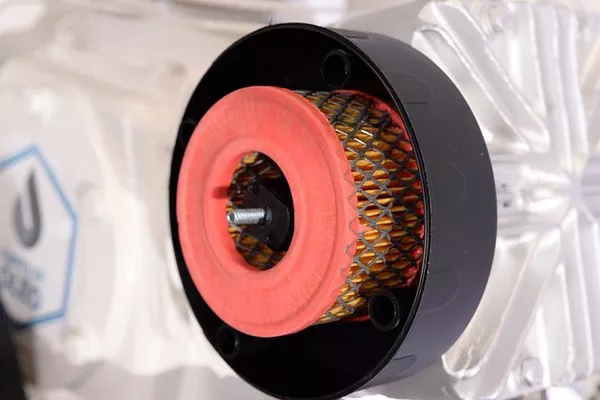In the realm of industrial and home applications, air compressors are indispensable tools that power a myriad of tasks, from inflating tires to driving pneumatic machinery. However, one persistent challenge that users often encounter is the noise generated by traditional air compressors. The incessant rumble and clatter can be not only disruptive but also contribute to noise pollution in workplaces and residential areas. This has driven the demand for quieter alternatives, leading to the development of a range of innovative and advanced compressors designed to provide the power of compressed air with minimal noise. In this article, we delve into the world of quiet air compressors, exploring the factors that contribute to their hushed operation and highlighting some of the most silent options available on the market.
The Quest for Quiet Operation
Noise reduction has become a significant focal point in the design and manufacturing of air compressors. Traditional compressors rely on powerful motors and mechanical components that generate substantial noise during operation. The decibel level can be particularly pronounced in enclosed spaces, leading to potential hearing damage and discomfort for operators and those in proximity. Moreover, many industries have regulations in place that mandate noise limits to ensure a safe and productive working environment. In response to these challenges, manufacturers have undertaken the task of engineering air compressors that strike a harmonious balance between performance and noise reduction.
Factors Contributing to Quietness
Several design factors contribute to the reduced noise emissions of quiet air compressors:
Sound Insulation: Quieter compressors incorporate sound insulation materials to absorb and dampen vibrations and noise generated during operation. These materials are strategically placed around the compressor components to contain sound waves and prevent their propagation.
Innovative Motor Design: Advanced motor technologies, such as brushless direct current (BLDC) motors, are utilized in quiet air compressors. These motors are inherently quieter and generate less vibration compared to traditional motors.
Low Vibration Design: The reduction of mechanical vibrations is critical in noise reduction. Quieter air compressors feature well-balanced components and anti-vibration mounts to minimize vibrations that can contribute to noise.
Efficient Cooling Systems: Heat generated during operation can lead to the expansion and contraction of materials, resulting in additional noise. Quieter air compressors employ efficient cooling systems that help regulate temperatures and reduce the likelihood of noise-inducing expansions.
Noise-Reducing Enclosures: Many quiet air compressors come equipped with enclosures made from noise-absorbing materials. These enclosures encapsulate the compressor, containing and mitigating noise emissions.
Leading Quiet Air Compressors
California Air Tools 10020C Ultra Quiet Air Compressor: This model is a standout in the realm of quiet air compressors, boasting noise levels as low as 70 decibels. The oil-free pump design contributes to its quiet operation, making it an ideal choice for indoor applications that demand minimal noise.
Rolair JC10 Plus 1 HP Oil-Less Compressor: With noise levels ranging around 60 decibels, the Rolair JC10 Plus offers a near-silent operation. Its oil-less design not only reduces maintenance requirements but also contributes to its hushed performance.
Makita MAC2400 Big Bore 2.5 HP Air Compressor: Known for its durability and reliability, the Makita MAC2400 features a low RPM motor that minimizes noise without compromising power. It hovers around the 79-decibel mark, making it suitable for various tasks.
California Air Tools 8010 Ultra Quiet & Oil-Free Air Compressor: Another contender from California Air Tools, the 8010 model, produces noise levels as low as 60 decibels. Its oil-free pump and large air tank contribute to its quiet and efficient performance.
DEWALT DWFP55130 Heavy Duty 200 PSI Quiet Trim Compressor: With noise levels around 71.5 decibels, this DEWALT model provides a balance between power and quiet operation. Its compact design and portability make it suitable for both professional and DIY applications.
Choosing the Right Quiet Compressor
When considering a quiet air compressor, several factors come into play:
Decibel Levels: Pay attention to the manufacturer’s specified decibel levels. A lower decibel rating indicates a quieter operation.
Intended Use: Determine the tasks you intend to accomplish with the air compressor. Different models cater to various applications, so ensure the compressor aligns with your requirements.
Portability: Some quiet air compressors are designed for portability, while others prioritize stability. Choose a model that suits your mobility needs.
Performance: While noise reduction is a crucial factor, ensure that the chosen compressor also delivers sufficient air pressure and volume for your tasks.
Durability: Evaluate the build quality and materials used in the compressor’s construction to ensure its longevity.
Conclusion
The era of disruptive air compressor noise is gradually being replaced by a more harmonious and tranquil approach. The advent of quiet air compressors offers a solution that harmonizes performance with minimal noise emissions, catering to both industrial and domestic environments. As technology continues to advance, we can expect even quieter and more efficient options to emerge, further contributing to the enhancement of workplaces and living spaces alike.

